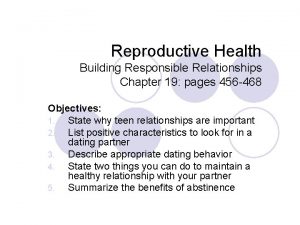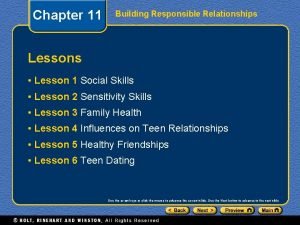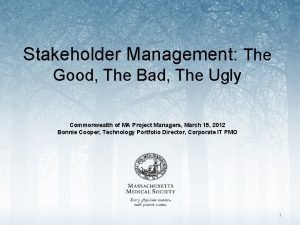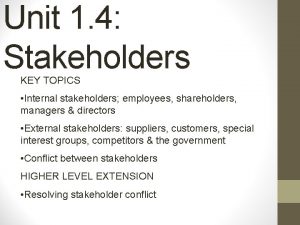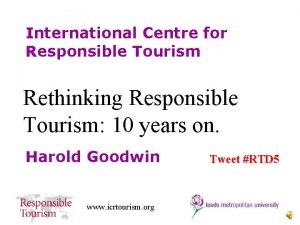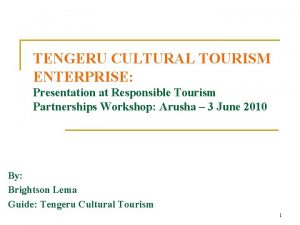IS COMMUNITY BASED TOURISM RESPONSIBLE TOURISM TOURISM STAKEHOLDERS

IS COMMUNITY BASED TOURISM RESPONSIBLE TOURISM? TOURISM STAKEHOLDERS FORUM Arusha – Tanzania June 3, 2010 By Henry Waruhiu

Outline • • CBT – What Is It? Why CBT? Why NOW? What needs to be done?

COMMUNITY BASED TOURISM • CBT) is responsible travel to natural areas that conserves the environment and sustains the well-being of local people. • Rooted in the local community • Preserves the natural environment, social and cultural values • Addresses economic needs of the local people • Involves local residents in the running and management of tourism projects

COMMUNITY BASED TOURISM • What are the indicators for responsible tourism? • From which perspective should they be measured? Community? Government? Tour operators? Tourists? Development partners? • Is it possible to measure them from all perspectives? • Is there a conflict between internationally developed indicators with those the communities would seek?

WHY CBT? • There is evidence that the majority of CBT initiatives enjoy very little success • There is a major gap between the academic • definition of the concept and the way it is used by practitioners. • Challenges of market access and governance in CBT. • Lack of consensus in the definition of CBT. • Has CBT been over-romanticized?

WHY CBT? • Tourism revenues globally are in excess of US$4 trillion. • What percentage of this do communities receive in Tanzania? Where do the rest of tourism dollars go?

WHY NOW? • Market access for CB tourism products (subnational level competitiveness) • Low level of skills and knowledge • Lack of sector-specific skills • Government policies: Are they more conducive today than before?

Is CBT Responsible Tourism? • Responsible Tourism is tourism ‘that creates better places for people to live in, and better places to visit’. • Is CBT then responsible tourism? • Is “responsible tourism” a marketing gimmick? • What is SUCCESSFUL Community Based Tourism? • Has CBT been responsible tourism? If not can it become so?

Two contrasting cases • Selenkei • Namunyak • What lessons do we learn?

Dilemmas • CBT stimulated by an external private sector player may have more challenges • NGO-driven CBTs may not be sustainable (if sustainability is seen as part of “responsible tourism”) • Community-driven tourism may shift humanwildlife conflict to human-human conflict unless certain preconditions are observed.

What are these preconditions? • Acquisition of knowledge and skills? • Well grounded management and governance structure? • Sharing of profits and re-investing these back to the community? • Stimulating an entrepreneurial culture within the community members? • Government policy on tourism?

Final Thoughts • More than 125 indicators developed, but by who? For who? And For what? • • • Political – 32 Social – 28 Ecological – 25 Economic – 24 Technological – 3 Cultural – 13 • Can they be all monitored? Are these all?

ASANTE SANA hwaruhiu@esamihq. ac. tz hwaruhiu@yahoo. com
- Slides: 13


